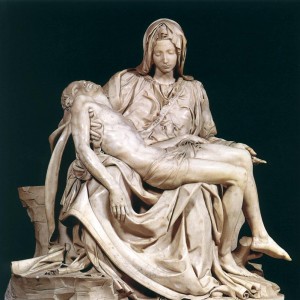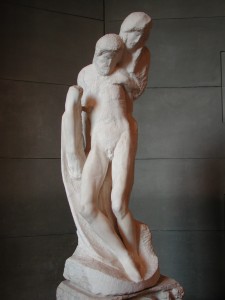Stephen Fry, you sympathetic genius, you.
The rare words often annoy the punter, but they never think, they never stop to think about a poet’s life. A painter has oils, acrylics and pastels, turpentine, linseed, canvas, sable and hog’s hair. When did you last employ such things routinely? To oil a cricket bat or mascara an eyelid, perhaps. Come to think of it, you’ve probably never oiled a cricket bat in your life, but you know what I mean. And musicians: a musician has entire machines of wood, brass, gut and carbon fibre; he has augmented sevenths, accidentals, Dorian modes and twelve-note rows. When did you ever use an augmented seventh as a way of getting back at your boyfriend or a bassoon obligato to order pizza? Never. Never, never, never. The poet, though. Oh, yes, the poor poet: pity the poor bloody poet. The poet has no reserved materials, no unique modes. He has nothing but words, the same tools that the whole cursed world uses to ask the way to the nearest lavatory, or with which they patter out excuses for the clumsy betrayals and shiftless evasions of their ordinary lives; the poet has nothing but the same, self-same, words that daily in a million shapes and phrases curse, pray, abuse, flatter and mislead. The poor bloody poet can no longer say ‘ope’ for ‘open’, or “swain’ for ‘youth’, he is expected to construct new poems out of the plastic and Styrofoam garbage that litters the twentieth-century linguistic floor, to make fresh art from the used verbal condoms of social intercourse. Is it any wonder that, from time to time, we take refuge in ‘gellies’ and “ataractic” and “watchet’? Innocent words, virgin words, words uncontaminated and unviolated, the very mastery of which announces us to possess a relationship with language akin to that of the sculptor with his marble or the composer with his staves. Not that anyone is ever impressed, of course. They only moan about the ‘impenetrability’ or congratulate themselves for being hep to the ellipsis, opacity and allusion that they believe deepens and enriches the work. It’s a bastard profession, believe me. (Stephen Fry “The Hippopotamus”)




